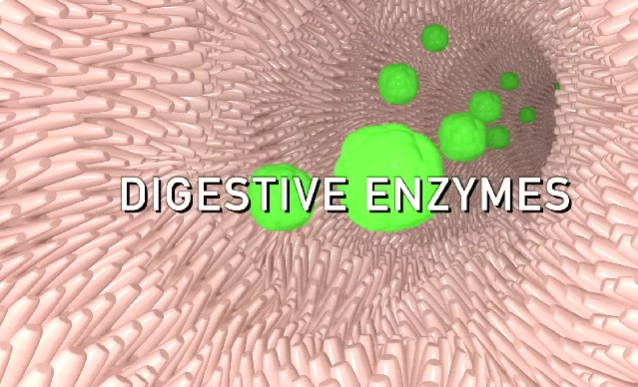Is Enzymes Halal
Understanding whether enzymes are halal is a topic of significant interest, particularly for individuals who adhere to Islamic dietary laws. Enzymes are ubiquitous in the food industry, playing crucial roles in processes such as fermentation, brewing, and baking. However, the halal status of these enzymes can be complex due to their diverse origins. This detailed exploration will delve into what enzymes are, their various sources, and the criteria that determine their halal status. By the end of this article, you will have a comprehensive understanding of the factors involved in determining whether enzymes are halal, supported by thorough research and an engaging narrative.
What Are Enzymes?
Enzymes are biological molecules, typically proteins, that act as catalysts to accelerate chemical reactions. They are essential in many biological processes and are widely used in the food industry for their ability to enhance texture, flavor, and shelf life. Some common uses of enzymes in food production include:
- Breaking down complex sugars in brewing to produce alcohol.
- Improving dough elasticity and fermentation in baking.
- Enhancing the flavor and ripening of cheese.

Sources of Enzymes
Enzymes can be derived from various sources, which is a crucial factor in determining their halal status. The primary sources of enzymes are:
Microbial Enzymes
Microbial enzymes are produced by microorganisms such as bacteria, fungi, and yeast. These enzymes are often considered halal, provided the microorganisms themselves are not genetically modified in a way that involves haram substances. Common microbial enzymes include:
- Amylase: Used in baking and brewing.
- Lipase: Used in dairy products to enhance flavor.
- Protease: Used in meat tenderizing and dairy products.
Plant Enzymes
Plant-derived enzymes are extracted from fruits, vegetables, and other plant materials. These enzymes are typically halal, as they come from natural, plant-based sources. Examples include:
- Papain: Derived from papaya, used in meat tenderizing.
- Bromelain: Derived from pineapple, used in meat tenderizing and as a dietary supplement.
- Pectinase: Used in fruit juice production to break down pectin and clarify the juice.
Animal Enzymes
Animal-derived enzymes are extracted from the tissues or organs of animals. The halal status of these enzymes depends heavily on the source animal and the method of slaughter. Enzymes from animals not slaughtered according to Islamic law (zabiha) are considered haram. Examples of animal-derived enzymes include:
- Rennet: Used in cheese production, traditionally extracted from the stomach lining of calves.
- Pepsin: Derived from the stomach of pigs or cows, used in the pharmaceutical industry and some food products.
Criteria for Halal Enzymes
Determining whether an enzyme is halal involves evaluating several factors:
Source of the Enzyme
- Plant-based and microbial enzymes are generally halal, provided they do not undergo any haram processing.
- Animal-based enzymes must come from animals slaughtered according to Islamic law.
Production and Processing
The production and processing methods of enzymes should not involve haram substances. This includes ensuring that no alcohol or other forbidden ingredients are used in the extraction, purification, or formulation processes.
Certification
Halal certification from recognized bodies provides assurance that the enzymes and their production processes meet Islamic dietary requirements. This certification involves rigorous auditing and inspection to ensure compliance with halal standards.
Commonly Used Halal Enzymes in the Food Industry
Here are some commonly used enzymes in the food industry and their typical halal status:
| Enzyme | Source | Typical Halal Status |
|---|---|---|
| Amylase | Microbial/Plant | Halal |
| Lipase | Microbial/Plant | Halal |
| Protease | Microbial/Plant | Halal |
| Papain | Plant (Papaya) | Halal |
| Bromelain | Plant (Pineapple) | Halal |
| Rennet | Animal (Calves) | Halal if zabiha |
| Pepsin | Animal (Pigs/Cows) | Haram if from pigs, Halal if zabiha cows |
Frequently Asked Questions
What are enzymes?
Enzymes are biological molecules, typically proteins, that act as catalysts to accelerate chemical reactions. They are essential in many biological processes and are widely used in the food industry for their ability to enhance texture, flavor, and shelf life.
What are the different sources of enzymes?
Enzymes can be derived from microbial, plant, and animal sources. Microbial enzymes are produced by microorganisms, plant enzymes are extracted from fruits and vegetables, and animal enzymes are obtained from animal tissues or organs.
Are all microbial enzymes halal?
Microbial enzymes are generally considered halal, provided the microorganisms themselves are not genetically modified in a way that involves haram substances. However, it is important to verify the production process to ensure no haram ingredients are used.
What are plant-based enzymes?
Plant-based enzymes are enzymes extracted from fruits, vegetables, and other plant materials. They are typically halal since they come from natural, plant-based sources. Examples include papain from papaya and bromelain from pineapple.
Are animal-derived enzymes halal?
Animal-derived enzymes can be halal if they come from animals slaughtered according to Islamic law (zabiha). If the animal is not slaughtered in a halal manner, the enzymes are considered haram.
What is rennet, and is it halal?
Rennet is an enzyme used in cheese production, traditionally extracted from the stomach lining of calves. Rennet can be halal if it is sourced from calves slaughtered according to Islamic law.
What is pepsin, and is it halal?
Pepsin is an enzyme derived from the stomach of pigs or cows. Pepsin from pigs is haram, while pepsin from cows can be halal if the cows are slaughtered according to Islamic law.
How can I ensure the enzymes in my food are halal?
To ensure the enzymes in your food are halal, look for halal certification from recognized bodies. This certification involves rigorous auditing and inspection to ensure compliance with halal standards.
Can enzymes be genetically modified?
Yes, enzymes can be genetically modified. However, for enzymes to be considered halal, the genetic modification process must not involve any haram substances or methods.
What are some common uses of enzymes in food production?
Enzymes are used in various food production processes, including breaking down complex sugars in brewing, improving dough elasticity in baking, and enhancing the flavor and ripening of cheese.
Is amylase halal?
Amylase, an enzyme used in baking and brewing, is generally halal when derived from microbial or plant sources. Verification of the production process is necessary to ensure no haram substances are involved.
Is lipase halal?
Lipase, used in dairy products to enhance flavor, is typically halal when derived from microbial or plant sources. It is important to verify the production process to ensure it meets halal standards.
Is protease halal?
Protease, an enzyme used in meat tenderizing and dairy products, is generally halal when derived from microbial or plant sources. Verification of the production process is necessary to ensure no haram substances are used.
What is the role of halal certification?
Halal certification provides assurance that products and their production processes meet Islamic dietary requirements. Certification involves rigorous auditing and inspection to ensure compliance with halal standards.
Why is it important to verify the source of enzymes?
Verifying the source of enzymes is crucial because the halal status depends on the origin and production methods. Ensuring that enzymes come from halal sources and processes helps maintain compliance with Islamic dietary laws.
Conclusion
Determining whether enzymes are halal requires careful consideration of their sources and production methods. Microbial and plant-derived enzymes are generally halal, while animal-derived enzymes must come from properly slaughtered animals to be considered halal. Research and certification from recognized halal bodies are crucial to ensure compliance with Islamic dietary laws. As enzymes play a significant role in the food industry, understanding their halal status is essential for consumers seeking to adhere to halal dietary practices. This comprehensive guide aims to provide clarity and support informed decision-making for those navigating the complexities of halal enzymes.
Read also: Is Bread Halal





